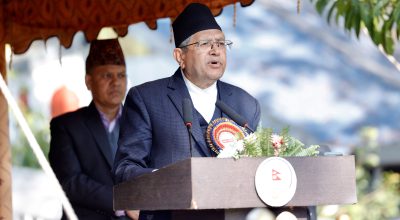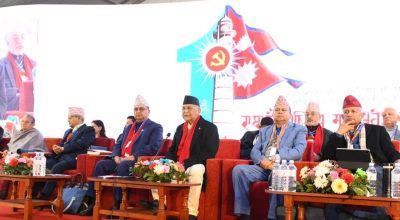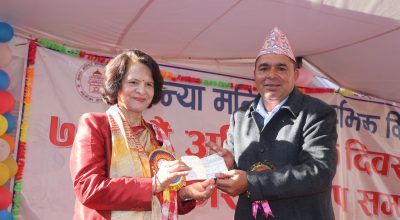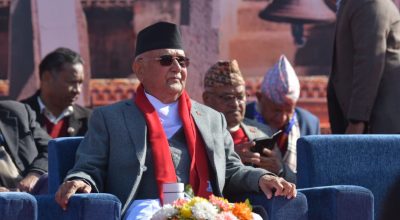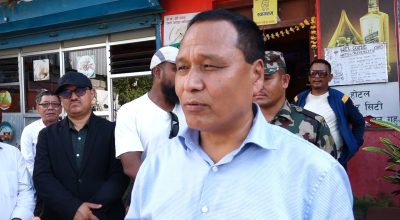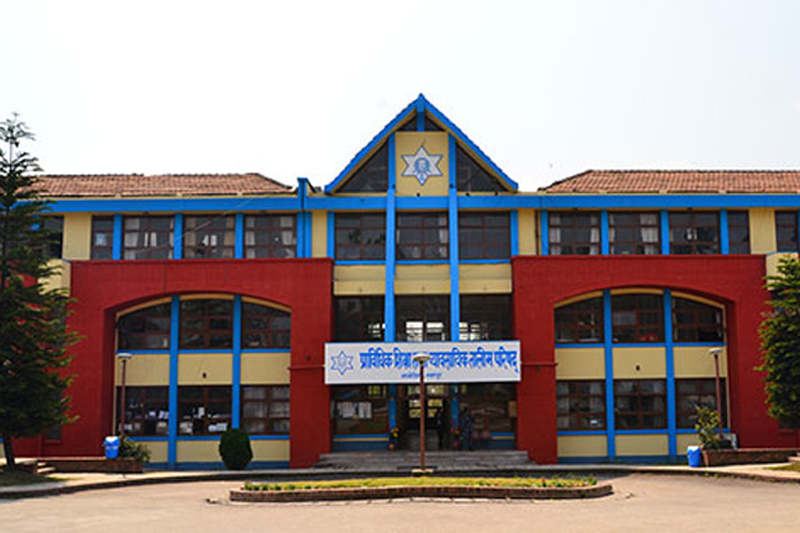
-Krishna Sapkota/RSS
Kathmandu: Policy-makers, experts and practitioners of technical vocational education and training (TVET) have highlighted the need of its reforms in terms of institutions, policy and programme so as to broaden its discernible contributions to the country’s development.
The experts also called for collaboration and co-creation with private sector in the operation and management of TVET sector considering their wider contributions to the creation of employment opportunities as well as putting measures to bridge gap in production of skilled work force and job market needs.
At a national seminar ‘Technical and vocational education and training: reform initiatives and future strategies’ jointly organized by Ministry of Education, Science and Technology and Kathmandu University School of Education (KUSOED) in the capital on Friday, Minster for Education Giriraj Mani Pokharel insisted that the country should adopt the paradigm for linking education to skills, skills to production and production to prosperity.
Underlining the need of multi-sector discussion on wider reforms in education, he called for concerned actors and stakeholders to engage in framing and finalizing three separate bills to manage higher education, technical and vocational education and national education.
Secretary at Ministry of Education Mahesh Prasad Dahal said the Ministry has upped its preparation to introduce a separate new law for further expansion of TVET sector placing quality at the centre. “The new law will help link the technical education policies of federal, state and local level governments, enhance investments and address the market demand for skilled workforce”, he said.
Dahal further shed light on the urgency of delegating authority among federal, state and local governments and defining funding modality to run TVET sector in a sustainable manner.
Presenting a working paper on ‘Issues, constraints and ongoing reform initiatives towards TVET in Nepal’, joint secretary at Ministry Dr Hari Lamsal spoke the need of reforms within the given framework of act, rules and prorgammes in a way to focus on small and medium enterprises, increase the use of technology in teaching learning and optimize the use of existing legal mechanisms.
“There needs conceptual clarity – skill should be linked with employment or education function and integrated and unified system is imperative to foster efficiency, coordination and accountability”, he stressed, adding, “The re-engineering of education sector, particularly skill development and redefining overall development have become the needs of the hour”.
Likewise, presenting another working paper ‘Local governments in TVET reforms in Nepal’, Kathmandu University School of Education Dean Prof Dr Mahesh Nath Parajuli highlighted a strong political commitment, institutional and organizational mechanisms, leadership building, sustained necessary funding, cultural compatibility and information and research systems at all levels for TVET sector reforms.
“There is no alternative to build the capacity of local governments if the TVET sector is to be broadened in Nepal”, he said, calling for the local governments to lead the process to link TVET with local production process, entrepreneurship and employment.
KU Vice-Chancellor Prof Dr Ramkantha Makaju Shrestha noted that the creative and skilled-based education was the need of the country claiming that applied TVET knowledge and skills can only prevent youths from migrating to foreign countries.
Likewise, former vice-chair of National Planning Commission Prof Dr Diensh Chandra Devkota said the vocational education had been lagging behind due to state’s inability to distinguish other education and technical education.
TVET expert Prof Rajendra Adhikari recommended the government to spur investment on technical vocational education in keeping with the federal contexts and current availability of economically active population in the country.
Local governance and decentralization expert Krishna Prasad Sapkota highlighted the need for maintaining a data base on the production of technical human resource and their engagement in job market which he said will help develop concrete plans to budge demand-supply gaps.
Also speaking on the occasion, TVET expert Prof Dr Tankanath Sharma, CTEVT member-secretary Pushpa Raman Wagle, former chef secretary Dr Som Lal Subedi, NPC member Dr Usha Jha, KUSOED Associate Dean Prof Laxman Gyawali, ministry joint-secretary Deepak Sharma and TVET expert Usha Bhandari, among others stressed to take institutional and policy reform strategies in the sector to cater to the needs of the country beign conscious to quality delivery.
Taking part in the deliberations of ‘Role of private sector in promoting TVET and employment creation’, industrialists and entrepreneurs have highlighted the need to engage private sector’s inputs while framing curriculum in technical and vocational education so that the mismatch between the production of skilled human resource and market need would be minimized.
Likewise, Department Head of KUSOED Development Studies Dr Prakash Chandra Bhattarai informed that the School of Education has run higher education courses including Master’s Degree in TVET to produce academically sound human resource to lead the sector.
It may be noted that the government has adopted a policy to establish and operate technical institute in each local government.
As many as 100 participants, including lawmakers, policy-makers, mayor, government officials, TVET advocates, experts, practitioners, academia, media, CSOs and students took part in the seminar organized to bring together multiple sectors for pushing the agenda for reforms in the sector, shared Prakash Poudel from KUSOED.
—







